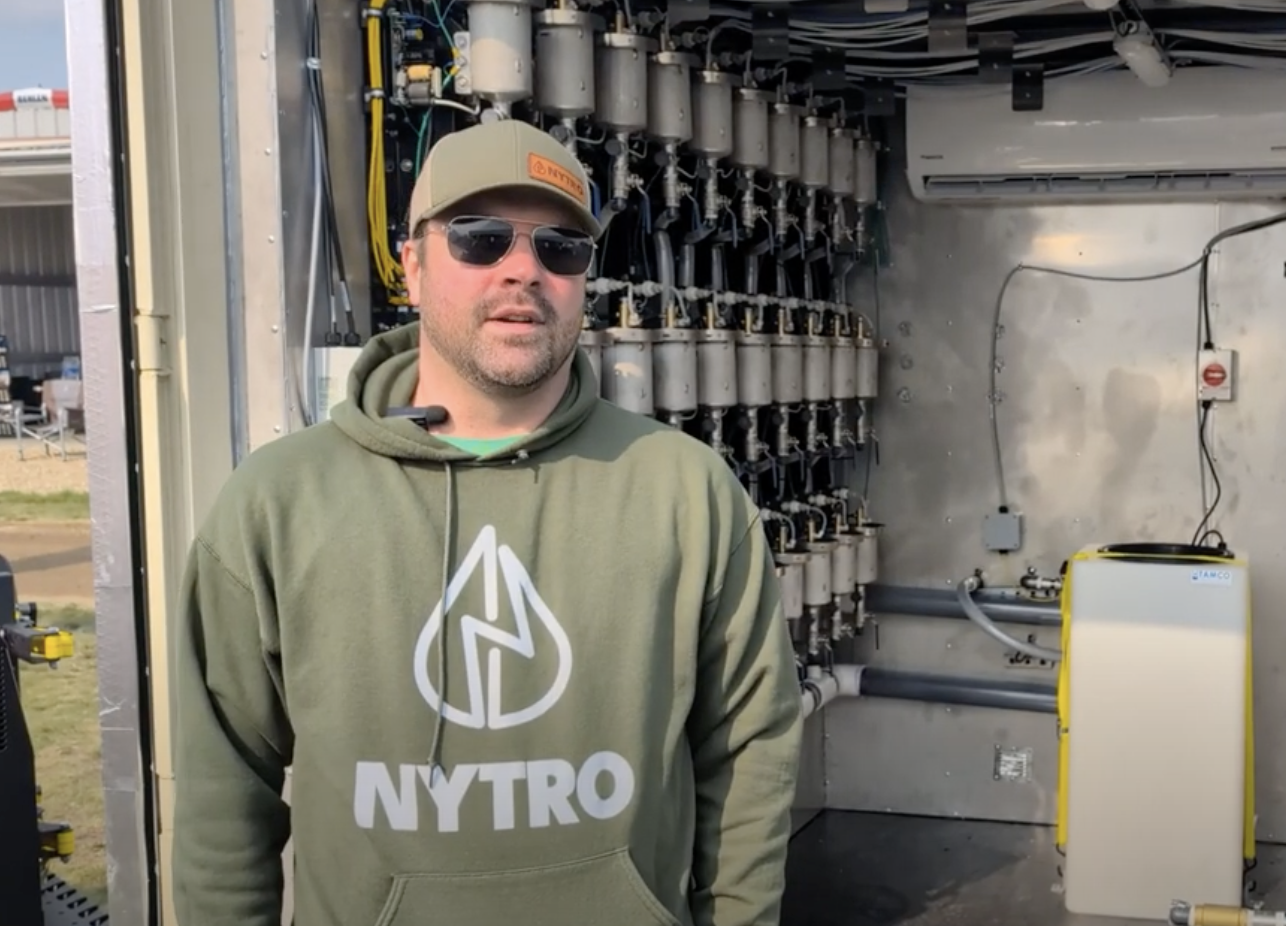A farmer may wonder what’s going on when the elevator manager says the test weight on his wheat sample is 58 pounds.
That sample was 61 lb. at home an hour ago when he checked it using the half-litre government approved measure cup. How can there be a three lb. variation if the farmer and the elevator manager are using an identical half-litre measure cup?
The answer is simple, says Jason Diehl of Dimo’s Labtronics in Winnipeg.
“We’ve seen that if five different people are given no instruction other than ‘fill up the cup, level it off and determine the grain test weight,’ there can be five different test weights with a range of two or three lb. per bushel,” Diehl said.
Read Also

VIDEO: Green Lightning and Nytro Ag win sustainability innovation award
Nytro Ag Corp and Green Lightning recieved an innovation award at Ag in Motion 2025 for the Green Lightning Nitrogen Machine, which converts atmospheric nitrogen into a plant-usable form.
Grain test weight is defined as a measure of grain density determined by weighing a known volume of grain, he said. Canadian standards say that volume equals the contents of an exact half-litre measure cup.
There’s a lot of money at stake when a sample is on the edge of going light or heavy, so precise measures are important. The cup must be government approved for use in trade. It can’t come from a kitchen cupboard.
But even if two cups are exactly the same volume according to the most precise scientific measurements, they can still give different test weight readings with the same sample.
“The problem is how we fill the half-litre cup. That affects the grain density,” Diehl said. “There are so many ways a person can fill the cup.”
Diehl said that’s why the federal government standard says the grain must flow into the half-litre cup through a funnel. The geometry of all funnels must be identical and their dimensions must be identical.
Those specifications say that the grain must flow out the bottom of the funnel through a round opening of 4.41 cm. The grain must drop 3.81 cm.
Any deviation from those criteria will result in changes in grain density in the cup, and thus variations in grain test weight.
“From talking to producers, it became clear to us that the use of a funnel is not as common as it should be. When a funnel is not used and the grain is just poured into the half-litre measure and leveled off, the variations can be enough to change the actual dollar value of the grain.
“The metal Cox funnels that were commonly used at one time are all hand made. There can be considerable variation. We used to sell metal funnels before we realized how much variation there really was,” Diehl said.
“That’s when we decided to design an ABS plastic funnel that can be built to the precise standards required for testing grain. Every funnel is exactly the same.”
The new funnel, introduced this winter, is designed to sit on top of a standardized half-litre measure, which is also manufactured by Dimo’s Labtronics.
Diehl said the metal regulation Cox funnel sells in Canada for $230. No matter how carefully a person treats them, they can still be bent or twisted. He said most farmers simply pour their grain into the cup with little thought about the density variation.
“Even if they have the approved half-litre measure, the density can be all wrong.”
The new ABS funnel sells for $65 and is guaranteed against breakage and is also guaranteed to meet government standards.
“This better price means that more farmers are now buying funnels. The other thing is that more farmers realize how important it is to get an accurate grain test weight on the farm. They are starting to see that pouring the grain doesn’t give them accurate information.
“We’ve also sold a number of ABS funnels to Sask Pool, Pioneer and Patterson. Their response has been very positive. They say the consistency and repeatability is much better with the ABS funnels.
“That’s one of the big advantages of the injection mould process. Each funnel is an exact duplicate of the other. There is no detectable variation.”
The funnels are available from Federated Co-op in Saskatchewan, UFA in Alberta and directly from Dimo’s Labtronics in Winnipeg.
For more information, contact Jason Diehl at 204-772-6998 or visit www.labtronics.ca.















